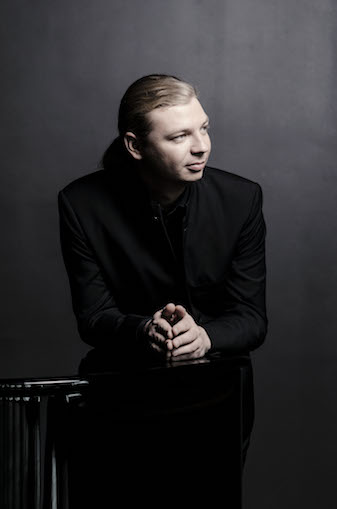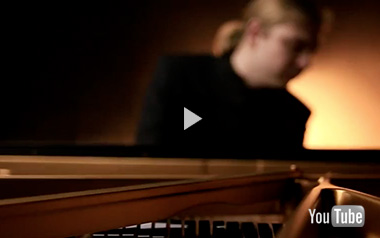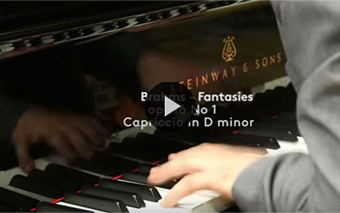Next Concerts
Jul 30, 2024
Festival Pablo Casals de Prades
Aug 1, 2024
BBC Prom, Royal Philharmonic Orchestra with Vasily Pentrenko
London, United Kingdom
Ravel: Piano Concerto in G major
Venue: Royal Albert Hall
Reviews
May 10th, 2022
Killer concerto, life-affirming symphony: Kozhukhin, Saraste and the BBC SO
“Which is the most challenging of all piano concertos? Is it the one with the most notes, the fastest tempi, the most outrageous leaps for both hands or simply the longest in duration? Obvious candidates spring to mind, but irrespective of the criteria applied Prokofiev’s Piano Concerto no. 2 in G minor is surely a major contender.
Leaving aside the feats of prestidigitation from Denis Kozhukhin, accompanied here by the BBC Symphony Orchestra directed by Jukka-Pekka Saraste, I think it was the multitude of moods the soloist conjured up, more than the myriads of cascading notes, that was the standout factor in this performance. Kozhukhin began almost dreamily, tip-toeing from the shadows into early-morning shafts of sunlight radiated by the softly shimmering strings, with astonishing pre-echoes of what Ravel was later to do in his G major concerto.
Then, with one of those touches of legerdemain which Prokofiev in particular displays so frequently, we were into a sardonic march, elements of piquancy giving colour and edge to the textures. Although the orchestra as a unit scarcely detracts from the role of the soloist as a narrator – the composer marks these passages narrante – it is important that conductor and soloist maintain unanimity of purpose. Saraste and his players worked hand-in-glove with Kozhukhin throughout.
The first movement cadenza, which takes up all of four minutes, is like the opening Allegro of a grand piano sonata. It had all the ferocious energy which the colossalemarking suggests, but Kozhukhin also stressed the rhapsodic in his hushed control of the dynamics, like pure mountain water trickling over the scree. He resisted the temptation to take the Scherzo, a Vivace with a vengeance, if ever there was one, as fast as possible, maintaining instead rock-solid solidity in the succession of semi-quavers, the octave leaps cast off as dizzyingly as any high-wire act.
The third movement brought those moments of grotesque elegance, or elegant grotesquerie, which reminded me of Saint-Saëns’ Danse macabre. Here too the emotional colouring shifted almost imperceptibly, from dark and angry to cheery and remorseful, from the resentful to the resolute. In the Finale, where the composer’s marking is Allegro tempestoso, there was a quite eerie awareness of the tradition of full-blooded Russian romanticism from which Prokofiev had emerged, Rachmaninov and Scriabin shining through the textures, not least in the beautifully voiced half-tones. After all this enthralling pianism, it was an additional treat to hear the crystalline purity of Kozhukhin’s encore, Grieg’s To Spring.”


